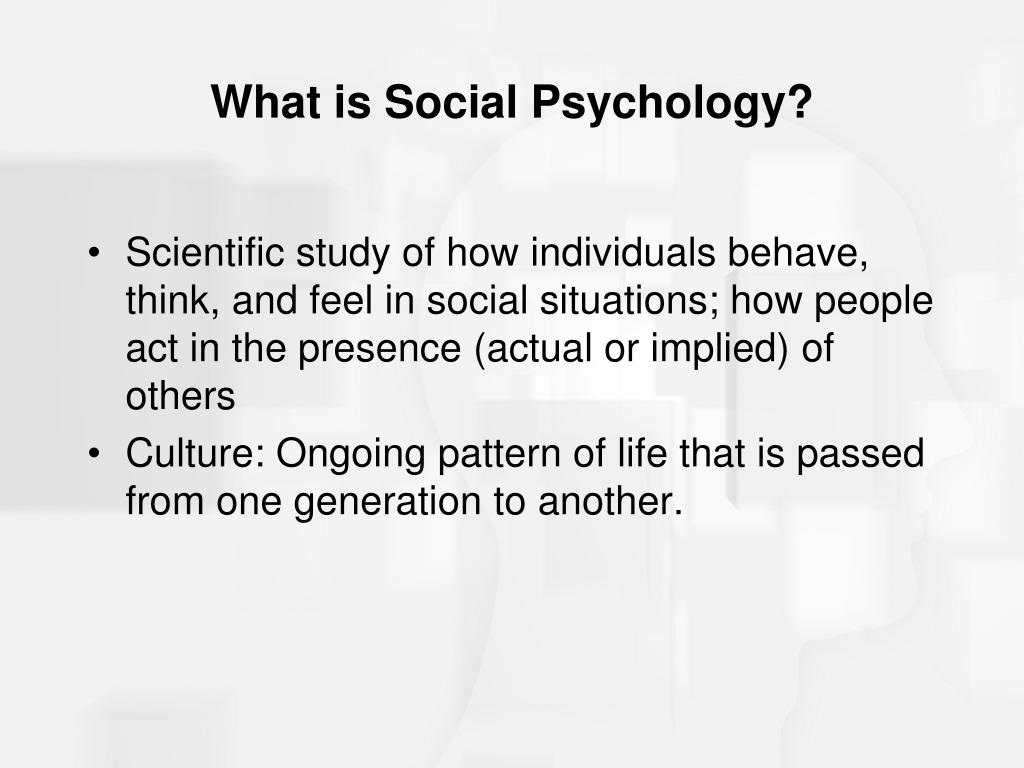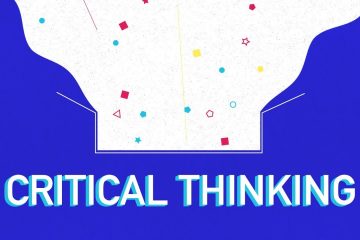The scientific study of how individuals behave, think and feel in social situations is known as ______.

The scientific study of how individuals behave, think and feel in social situations is known as ______.
A. Social psychology
Elevate Your Writing with Our Free Writing Tools!
Did you know that we provide a free essay and speech generator, plagiarism checker, summarizer, paraphraser, and other writing tools for free?
Access Free Writing ToolsB. Cultural psychology
C. Behavioral psychology
D. Group psychology
Answer; A. Social psychology.
Explanation; The scientific study of how individuals behave, think and feel in social situations is known as social psychology
Psychology is a social science discipline. Psychologists scientifically study ________.
- only the mind
- the soul
- the soul and behavior
- only behavior
- the mind and behavior
Answer: E. the mind and behavior
Explanation: Psychology can be defined as a science that studies how the human mind works and it seeks to explain and predict behaviors and then, try to change them if needed. According to this, the answer is that psychologists scientifically study the mind and behavior.
What is psychology?
Psychology is a social science and profession, which attempts to understand human behavior and mental processes. It does so by observing people’s behaviors, asking questions about those behaviors and the thoughts behind them, and performing experiments in an attempt to unearth the reasons for a particular behavior or thought. Best psychology essay writing service helps students write the most outstanding psychology essays on diverse topics. In case you have a psychology topic don’t stress anymore because we will ensure you score high on your papers.
Overview of the Branches of Psychology
There are two main types of psychology, experimental and applied psychology. Experimental psychology focuses on understanding behavior, thought, and emotion through the use of research. Applied psychology applies its findings towards solving practical problems in everyday life. It is also divided into two branches: clinical and counseling psychology, which focuses on treating mental illness, and industrial-organizational (I/O) psychology, which focuses on improving the workplace.
Major Branches of Psychology
Psychology is divided into five major branches: social, cognitive, developmental, clinical, and counseling. Each branch focuses on one area of psychology research and application. Some of these branches are more focused on a particular aspect of psychology than others, but all branches focus on the same basic science: communication.
1. Abnormal psychology
The study of psychopathology and aberrant conduct is known as abnormal psychology. In order to recognize, comprehend, and maybe address any problems that might be adversely influencing a person’s life, it entails the study of people’s emotional, mental, and behavior patterns.
Anxiety and depression are only two of the many psychological problems that specialists in this area of psychology analyze, diagnose, and treat. Working directly in this field is common for counselors, clinical psychologists, and psychotherapists.
2. Behavioral psychology
Behavioral psychology is a scientific approach to studying learning. It entails recording how an individual reacts to a certain situation, then analyzing the data to determine factors such as the speed of learning, motivation, and reinforcement. This branch of psychology also looks at classical conditioning and operant conditioning concerning behavior modification.
Behavioral psychology looks at behavioral pharmacology and neuropsychology to analyze the effects drugs have on behavior change and human thought.
3. Biopsychology
Biopsychology is the study of behavior in the context of natural processes and symbiotic relationships between organisms. This encompasses all aspects of the social and psychological realms, including communication and behavior, as well as how humans relate to their environment outside of the psychological realm.
Biopsychology takes a holistic approach to studying psychology, which means it requires knowledge about biological processes, natural selection, instincts, hormones, and other biological factors.
4. Clinical psychology
Clinical psychology is the application of the scientific study of behavior to everyday life. It involves applying the findings from research in other areas of psychology to help people. This type of psychology looks at how people think, communicate, and relate as well as their emotions, personal habits, and social interactions.
Clinical psychologists work with patients suffering from anxiety disorders, phobias, eating disorders, behavioral problems in school and at home, etc. They also create strategies for individuals who cannot cope on their own.
5. Cognitive psychology
Cognitive psychology is the study of learning, thinking, and perception. It applies cognitive processes to understanding the world around us and helps us understand how we process information and make judgments about it.
Cognitive psychologists look into how and why people think, what might go wrong in the brain with learning or thought processes, and how our environment affects how we learn.
6. Comparative psychology
Comparative psychology, also known as animal psychology, is the study of how animals think, learn, and process information. It is a branch of biology that studies the similarities between humans and other animals in terms of behavior and thought, but not necessarily in every single aspect.
This branch of psychology involves studying animal behavior in order to better understand humans’ behavior. It focuses on learning and memory, as well as instinctive responses such as mating, aggression, territoriality, species identification, etc.
Scheme through some of the best psychology essay topics you can write about.
7. Counseling psychology
Counseling psychology aims to improve an individual’s mental health and well-being. It is concerned with the psychological conflicts that occur within the mind and works to resolve these conflicts through therapeutic, educational, or research methods.
Counseling psychologists have a strong focus on helping people with issues related to stress and anxiety as well as depression and other mental illnesses.
8. Cross-Cultural psychology
Cross-cultural psychology studies how culture affects an individual’s behavior. It entails the study of how each culture views and experiences specific concepts, values, and ideas, as well as how these two aspects interact.
Cross-cultural psychology focuses on social, emotional, cognitive, and behavioral factors that influence the way people think about things, respond to their environment, and relate to other people. To achieve this goal, it requires specialists to integrate methods from anthropology and sociology into their study.
9. Developmental psychology
The study of development begins at the earliest stages of life. It is a branch of psychology that looks at how children learn, develop, and interact with their environment throughout their lives.
This area of psychology studies how children think, communicate as well as their interests and ability to socialize. Much research centers on how to create effective learning environments for young people to encourage independent thinking, communication skills building, effective problem-solving abilities, and knowledge transfer.
10. Educational psychology
Educational psychology examines how to improve the quality of life for individuals through educational and psychological means. It involves studying how intelligence, motivation, and personality traits are influenced by what an individual learns, as well as taking a dynamic approach to learning that emphasizes the individual’s growth throughout their lifetime.
This branch of psychology focuses on teacher-student interactions in classrooms and schools, as well as the role of culture in creating effective teaching methods.
11. Experimental psychology
Experimental psychology aims to determine the relationship between stimuli and responses, as well as to investigate the mechanisms involved in higher mental processes.
Experimental psychologists often depend on scientific observation and measurement in order to perform their experiments. This allows them to study human thought processes, motor functions, and sensory perception in detail.
12. Forensic psychology
Forensic psychology is the application of psychological research to legal matters. Forensic psychologists work with the courts and criminal justice system in order to help assess and manage behaviors that are relevant to criminal or civil cases.
In most instances, forensic psychologists are hired to help determine the mental state of the defendant during the commission of a crime. They also test for emotional problems and intellectual functioning as well as provide insight into how likely a person is to re-offend.
13. Health psychology
Health psychology refers to the study of how psychological factors, such as stress and emotions, influence health. It aims to identify specific factors that can be controlled to help improve health.
Health psychology studies how happiness and anxiety differ, how people perceive the environment around them and their behavior in it, and how habits affect our well-being.
14. Industrial-organizational psychology
Industrial-organizational psychology is a branch of psychology that helps with improving performance within the workplace, especially in terms of employee motivation and satisfaction.
Industrial-organizational psychologists focus on the psychological aspects that affect an individual’s behavior at work, such as job satisfaction, work motivation, and organizational commitment. They also help create psychologically safe workplaces.
15. Personality psychology
Personality psychology involves the study of personality traits and how they influence behavior. People who have a certain personality type tend to have certain characteristics and tendencies that are common among all people with this type of personality.
Personality psychology studies how our personalities develop in childhood and why some personality traits, such as extroversion, become stronger than others.
16. School psychology
School psychology is an area of psychology that focuses on how students learn in the classroom and how the school environment can be improved to meet these needs. Some school psychologists are hired to guide a student with behavioral issues, while others focus on the development of a healthy environment within the classroom and throughout the school.
School psychologists work together with teachers and parents in order to foster good relationships between all parties. They often try to encourage teachers to create relatively stress-free classrooms, as well as develop learning environments that allow students to feel safe and secure.
17. Social psychology
The area of social psychology focuses on the relationship between an individual and other people as well as how a group of people works as a whole. Social psychologists study human interaction, group processes, and social influence within a social setting.
Social psychologists are interested in the way people behave, and their thoughts and feelings in various situations. They also focus on how groups interact with each other, including how an individual can affect the rest of the group positively through leadership or teamwork.
18. Sports psychology
A variety of sports psychology focuses on how to improve an athlete’s performance. Athletes who are struggling might benefit from coaching or psychological treatments that are geared specifically towards their needs.
The main goal of sports psychology is to help athletes perform their best, especially when they face difficult situations such as fatigue, injury, and loss of concentration.
Psychology is one of the most evolving and diverse disciplines in the natural sciences. It is a very broad field of study that touches almost all of our daily lives, especially those that are tied to emotions and human interactions.
The field has become more and more complicated in recent years, with research groups now emerging that focus on studying various aspects and areas within psychology such as neuroscience, animal cognition, social cognition, and others.
More psychology questions
- Critical thinking means making judgments based on
- Which of the following statements about eyewitness testimony is correct?

Special offer! Get 20% discount on your first order. Promo code: SAVE20


